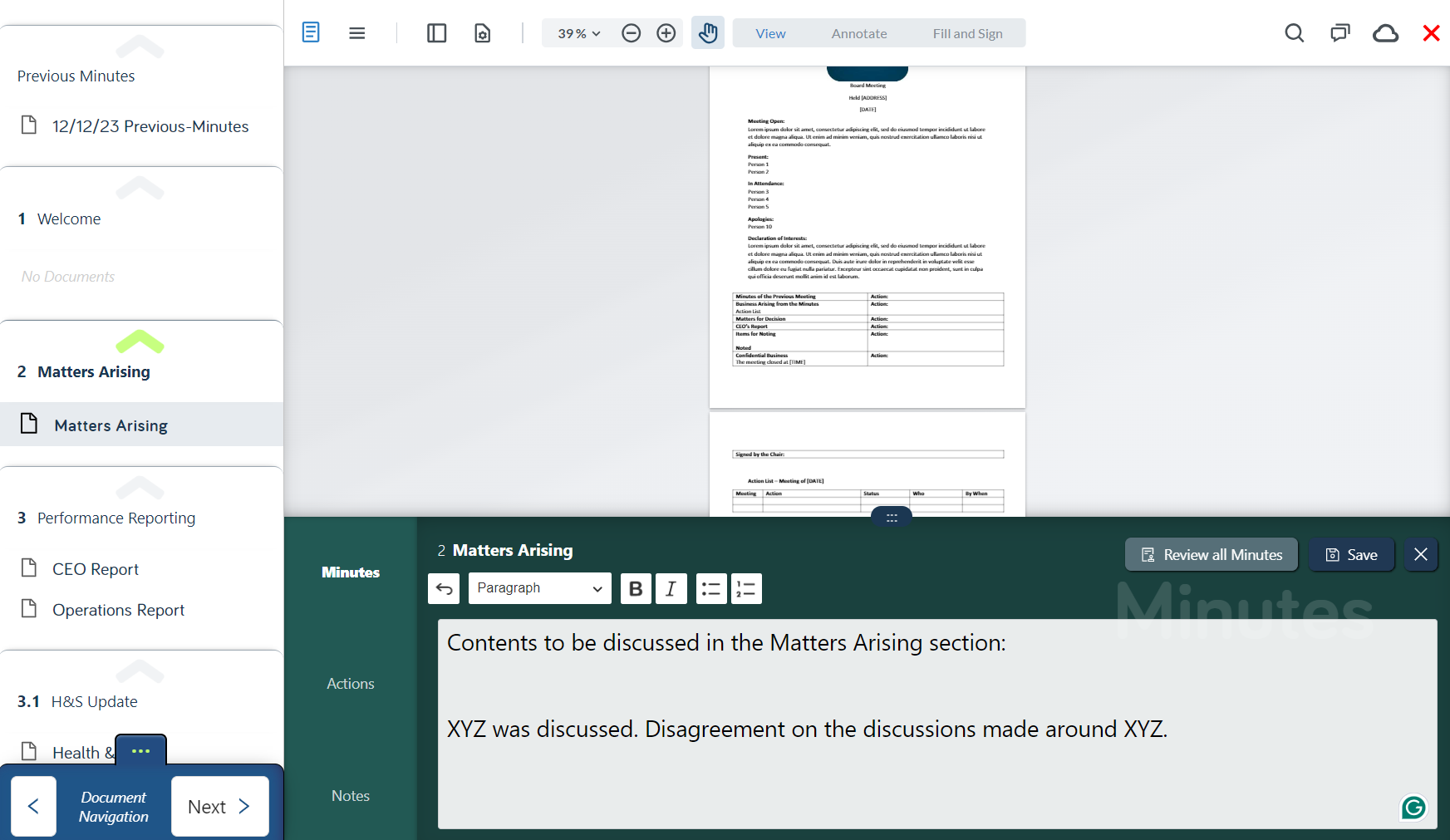Board meetings serve as crucial milestones where strategic decisions are made, visions are shared and progress is evaluated. For SME’s, NFP’S large businesses alike, the success of these meetings can impact the long-term outcomes of the business. Ensuring that these meetings are productive and drive the business forward is key. Simply put, effective board meetings make better decisions.
Leveraging advanced board management software and customisable meeting minutes templates streamlines these processes, enhancing efficiency and fostering clearer communication among board members.
Here are 5 essential tips to help you master the art of effective meetings.
1. Build a high-quality board
The foundation of a successful board meeting lies in assembling a high-quality board. Including representation from founders, major investors and independent directors.
Effective boards ultimately depend on the quality and conduct of its members as well as their ability to oversee and guide a business to achieve its goals. Board members should bring individual expertise and skills as well as the ability to work with others constructively.
The Institute of Directors NZ has a great article about what makes up a good board in terms of composition and mix.
Building a high-quality board will help your company reach its potential, set strategy, oversee management and protect the interests of shareholders and stakeholders.
2. Set clear objectives and agendas
Before convening a board meeting, it is critical to define clear objectives and set a structured agenda. A focused agenda serves as a roadmap for the board meeting and the backbone for constructive discussion.
Consider what specific decisions need to be made, having clear objectives and purpose ensures that everyone understands the importance of the meeting and can contribute meaningfully.
Directors should ensure that:
- The meeting has a clearly defined purpose
- They are well-informed of matters to be discussed
- They receive relevant documentation including the agenda and board papers at least seven days prior
Setting clear objectives and agendas ensures that everyone comes prepared, stays focused, make more efficient use of time and facilitates informed decision making.
3. Encourage open communication and participation
A key responsibility for directors is to question management, and each other about the items of business in front of them.
The boardroom is a place of mutual respect and fostering open communication among the chair, directors and other attendees is crucial. Board members should feel comfortable sharing opinions and perspectives without fear of judgment.
It’s vital for directors to ‘Play the issue, not the person’ and actively seek input from all members to leverage the collective wisdom of the board.
4. Utilise technology for efficiency
Online tools to improve organisational efficiency and governance have taken off in the last 5 years. Board management software, also known as board portals has greatly improved the workflow and efficiency of board meetings. With organisations running leaner and looking to increase productivity, there has been huge growth in this category.
Board management software enables directors and administrators to easily create agendas, take minutes, securely access governance documents, assign tasks and much more. StellarBoard is a board management software that is designed to support boards and administrators from pre-meeting to post-meeting and everything in between!
StellarBoard enables directors to make faster, more informed decisions. It is secure, cost effective and simple to use for both admins and directors. Take a look at the range of features in our board management software or feel free to contact us if you have any questions.
5. Quality meeting minutes templates
Good record-keeping is fundamental to best practice and the efficient functioning of the board. The minutes essentially tell the story of the meeting and the reasons behind why certain decisions were made.
They are an indicator of integrity and also serve as an official record of discussion to inform absent members.
The Stellar Board meeting minutes template enables the board administrator to take clear, precise minutes against the agenda topics.

When selected, the agenda topics are pulled up with a free-hand text box that offers plenty of different formatting options. It features unlimited text, a spell checker and the ability to bold and italicise text. Users can assign multiple people and set automatic reminders.
Draft minutes can be shared with users and carried forward to the next meeting for approval. This meeting minutes template is perfect for capturing notes, decisions and actions and turning them into a professional document. Read more about the importance of quality board meeting minutes
Mastering the art of effective board meetings requires careful planning, clear communication and continuous improvement. By building a high-quality board, setting clear objectives and agendas, encouraging open communication and participation, utilising board management software for efficiency, and recording quality minutes with a meeting minutes template, boards can optimise meetings to drive decision-making, foster collaboration and achieve organisational success.


